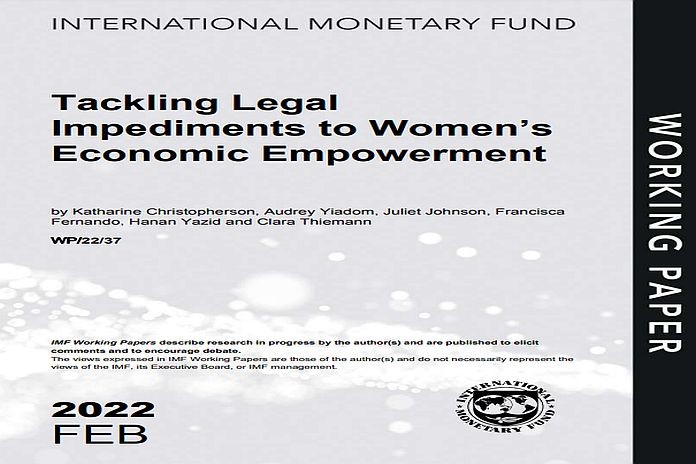By Katharine Christopherson ; Audrey Yiadom ; Juliet Johnson ; Francisca Fernando ; Hanan Yazid ; Clara Thiemann
It is well established that a wide range of legal impediments in countries’ domestic laws have prevented women from achieving full economic empowerment, which in turn has negative macroeconomic implications.
In many countries, laws often reflect and perpetuate gender norms that limit women’s economic participation, and removal of these impediments through legal reform has been shown to be an effective method to catalyze greater participation of women in the economy – along with the related macroeconomic benefits.
Once legal barriers are removed and provisions for more equal treatment under the law are embedded, the law can also be employed as a powerful tool to incentivize women to pursue equal opportunities, change mindsets regarding the role of women, and hold institutions and individuals accountable for achieving results. Accordingly, it is imperative for countries to focus on eliminating existing legal impediments and designing appropriate incentives to increase women’s participation in the economy.
This paper goes beyond previous Fund work by categorizing the key sources of laws that impede women’s economic empowerment, as well as ways in which the law can be used as a tool to create behavioral changes and shifts in perceptions of women in the economy.
Case studies of six countries (Iceland, Peru, Rwanda, The Philippines, Tunisia, and the United States) that rank high in gender equality in their respective regions demonstrate how legal reforms have been implemented in differing contexts to help achieve women’s economic empowerment. Given the relevance to the Fund’s mandate, the paper also notes the case for a stepped-up role for the IMF in advising on legal reforms that remove barriers to, and incentivize, women’s economic empowerment.
Although this paper highlights dominant belief systems and cultural norms that have contributed to limiting the economic empowerment of women, it does not intend to render any judgment on these systems or norms.
Read the IMF Working Papers – wpiea2022037-print-pdf





